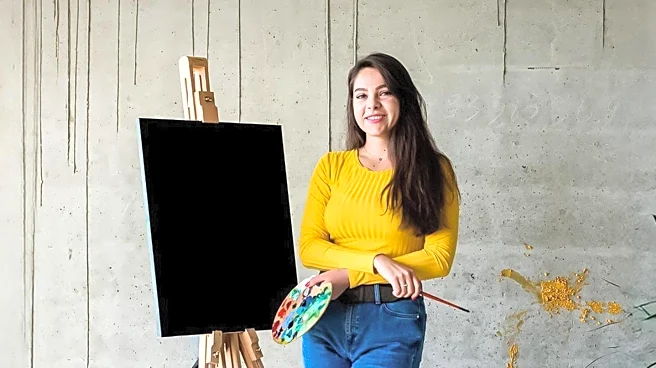What is the story about?
What's Happening?
Rachel Martin, a 33-year-old from Sydney, Australia, has found a new passion in journaling with fountain pens and specialty inks as a way to reduce her screen time. This shift was motivated by her realization of spending over 12 hours a day on digital activities, which exacerbated her chronic migraines. Martin's journey highlights a growing trend among individuals seeking to disconnect from screens and engage in more tactile, analog hobbies. Experts like Sarah Pressman and Matthew Zawadzki emphasize the benefits of small, enjoyable activities that can cumulatively enhance mood and health. They suggest starting with short, fulfilling activities and exploring various options to find what brings joy.
Why It's Important?
The movement towards screen-free hobbies is significant as it addresses the increasing concerns over digital addiction and its impact on mental and physical health. Engaging in non-digital pastimes can reduce stress and improve overall well-being, offering a counterbalance to the pervasive digital lifestyle. This trend could influence public health policies and encourage the development of community programs that promote analog activities. Additionally, it highlights the importance of intentional leisure time, which can lead to more meaningful social interactions and personal fulfillment.
What's Next?
As more individuals like Martin explore screen-free hobbies, there may be a rise in community groups and events centered around these activities. This could lead to increased demand for related products and services, such as specialty journals and pens. Furthermore, educational institutions and workplaces might incorporate screen-free initiatives to promote mental health and productivity. The trend could also inspire further research into the benefits of analog hobbies and their role in modern society.
Beyond the Headlines
The shift towards screen-free hobbies raises questions about the cultural and societal implications of digital dependency. It challenges the notion of productivity and leisure in a digital age, prompting a reevaluation of how time is spent. This movement may also influence the design of public spaces and the availability of resources that support analog activities, fostering a more balanced lifestyle.

















